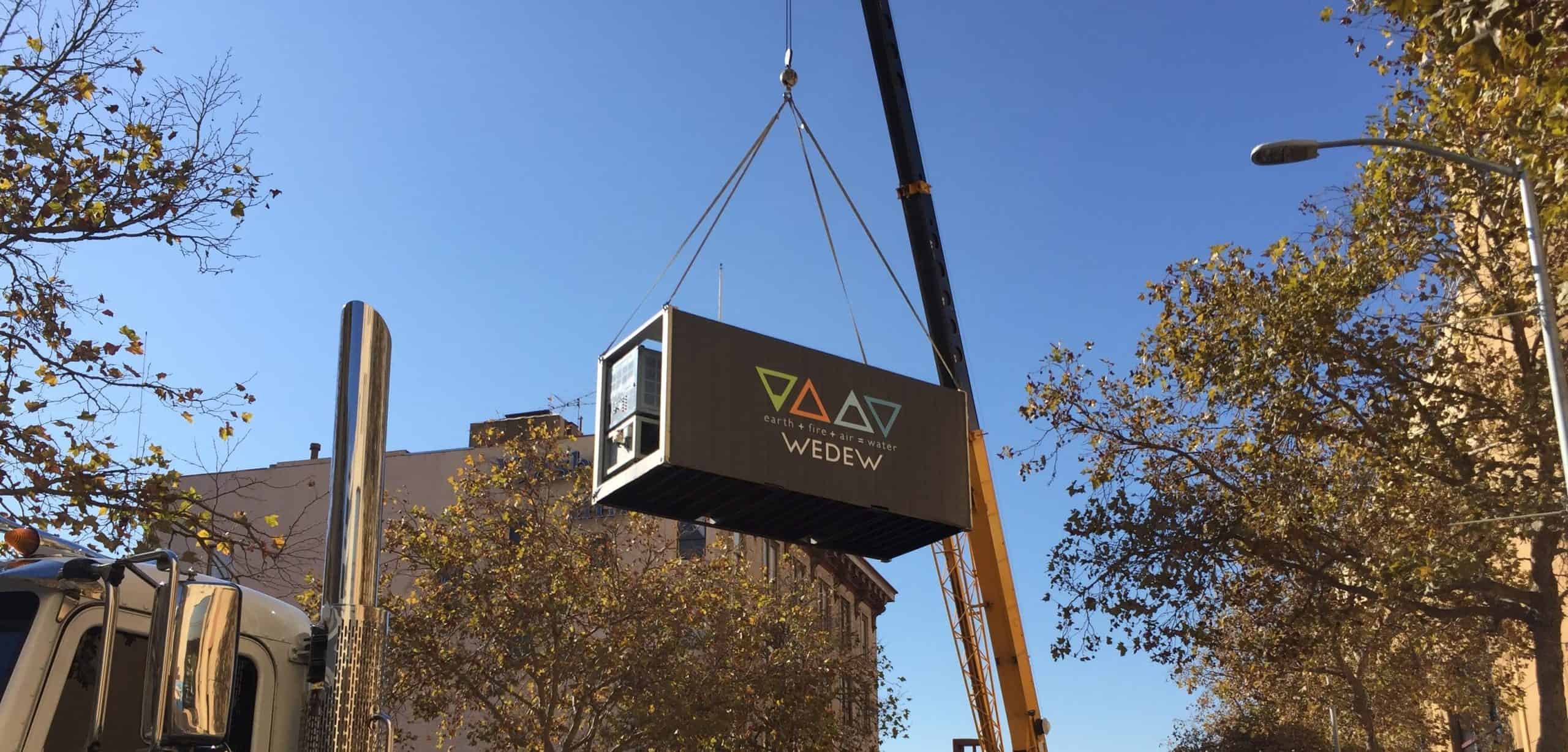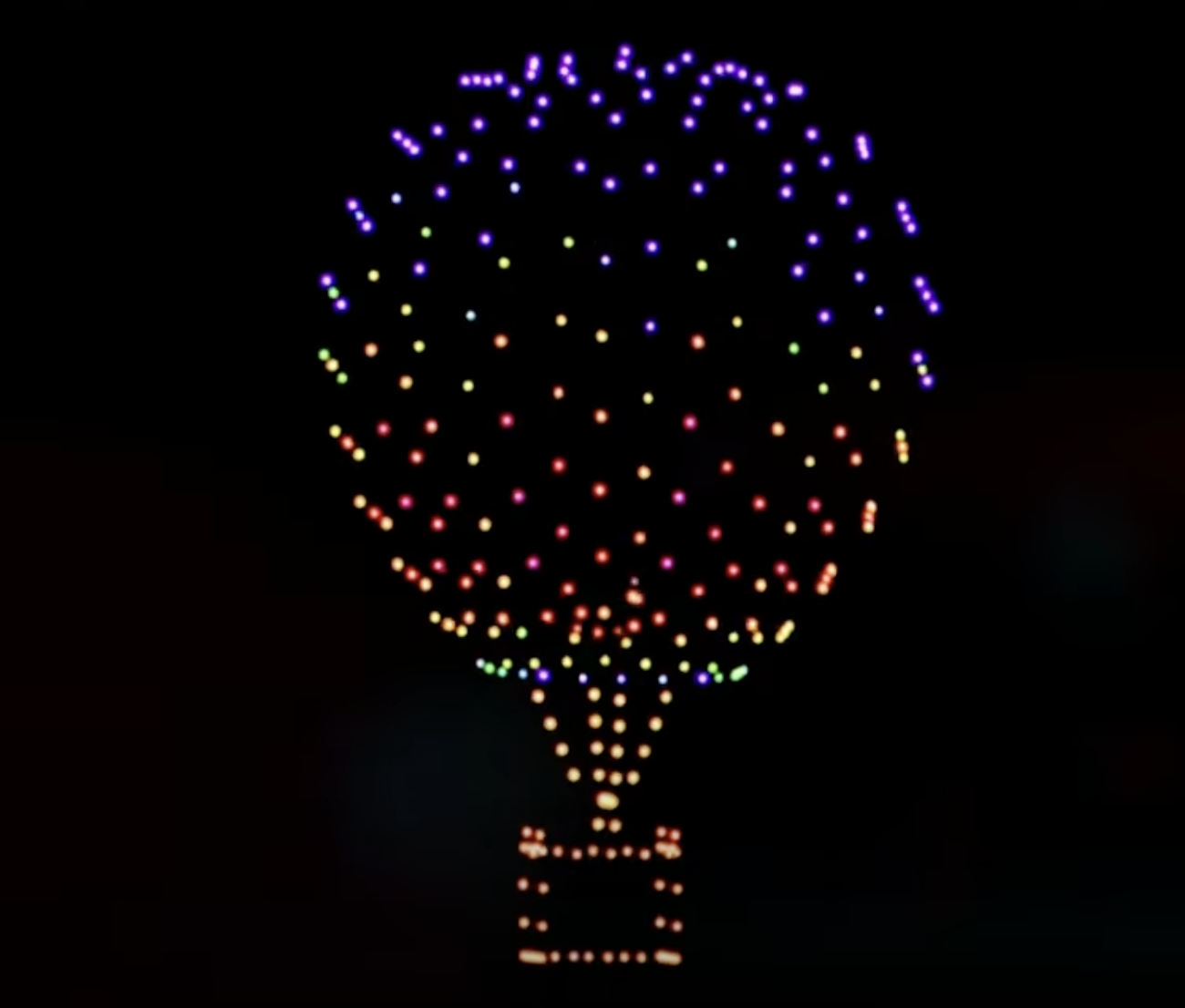On the Fourth of July, 300 drones will take to the skies above Laguna Beach in Orange County, California. To celebrate Independence Day, they will paint the stars and stripes and giant letters U-S-A in red, white and blue into the sky above the Laguna shores, creating a spectacular light show in patriotic colors. But this year, one thing will be notably different: For the first time, the coastal city will use drones instead of pyrotechnics, and except for the aahs and oohs of the viewers, the night will be fantastically quiet.
“At the end of the day, this comes down to protecting our environment, veterans and our wildlife,” Laguna Beach Mayor Pro Tem Alex Rounaghi said about the decision.
Laguna Beach will join La Jolla, North Lake Tahoe, parts of Los Angeles, and a growing number of other cities around the world that have decided to stop launching rockets in favor of more environmentally friendly celebrations.
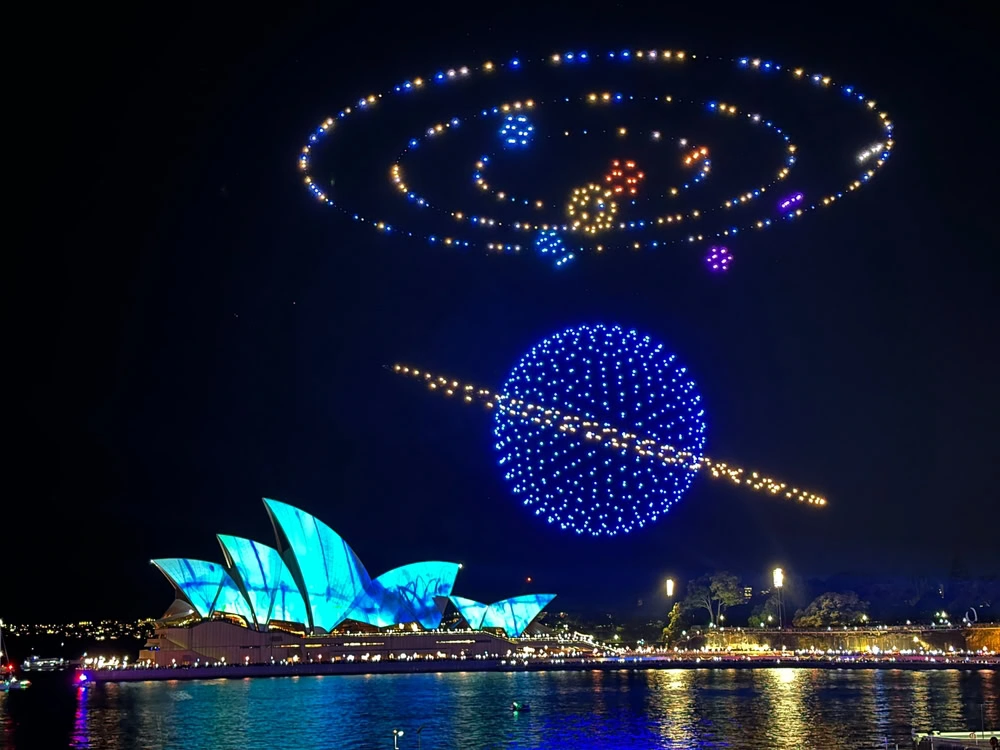
This is the cities’ response to residents’ and animal rescuers’ requests, but also to fire and safety concerns. A 2023 court ruling in California tightened environmental rules for fireworks and led to new permit regulations by the LA Regional Water Quality Control Board for pyrotechnics over water.
Fireworks have been a US tradition since early settlers brought them to the first American Independence Day celebration in 1777. And their invention dates back to a millennium before that, when Chinese alchemists invented the first manmade fireworks, intended to scare away evil spirits.
Weighed down by negative news?
Our smart, bright, weekly newsletter is the uplift you’ve been looking for.But I’ve seen first-hand the devastation that fireworks can cause. For several years, when I volunteered as a marine mammal rescuer with a local rescue organization, we reliably collected dozens of distressed sea lion pups and disoriented birds in the days after the big bang of Independence Day. Animal shelters routinely clear their kennels before the Fourth of July (a.k.a. euthanize resident dogs who haven’t been adopted) in preparation for the influx of panicked dogs and cats that jump their owners’ yards, terrified when the big booms go off. Studies in Europe confirm that fireworks displace migratory birds long-term, cause birds to abandon their nests for good and lead wild horses to injure themselves when they flee the noise.
“It’s terrible for cats and dogs and wildlife,” animal rescuer Tami Carter in San Diego says about the impact. “Some run into traffic, birds fly into buildings and some animals like wild bunnies die from the stress.”
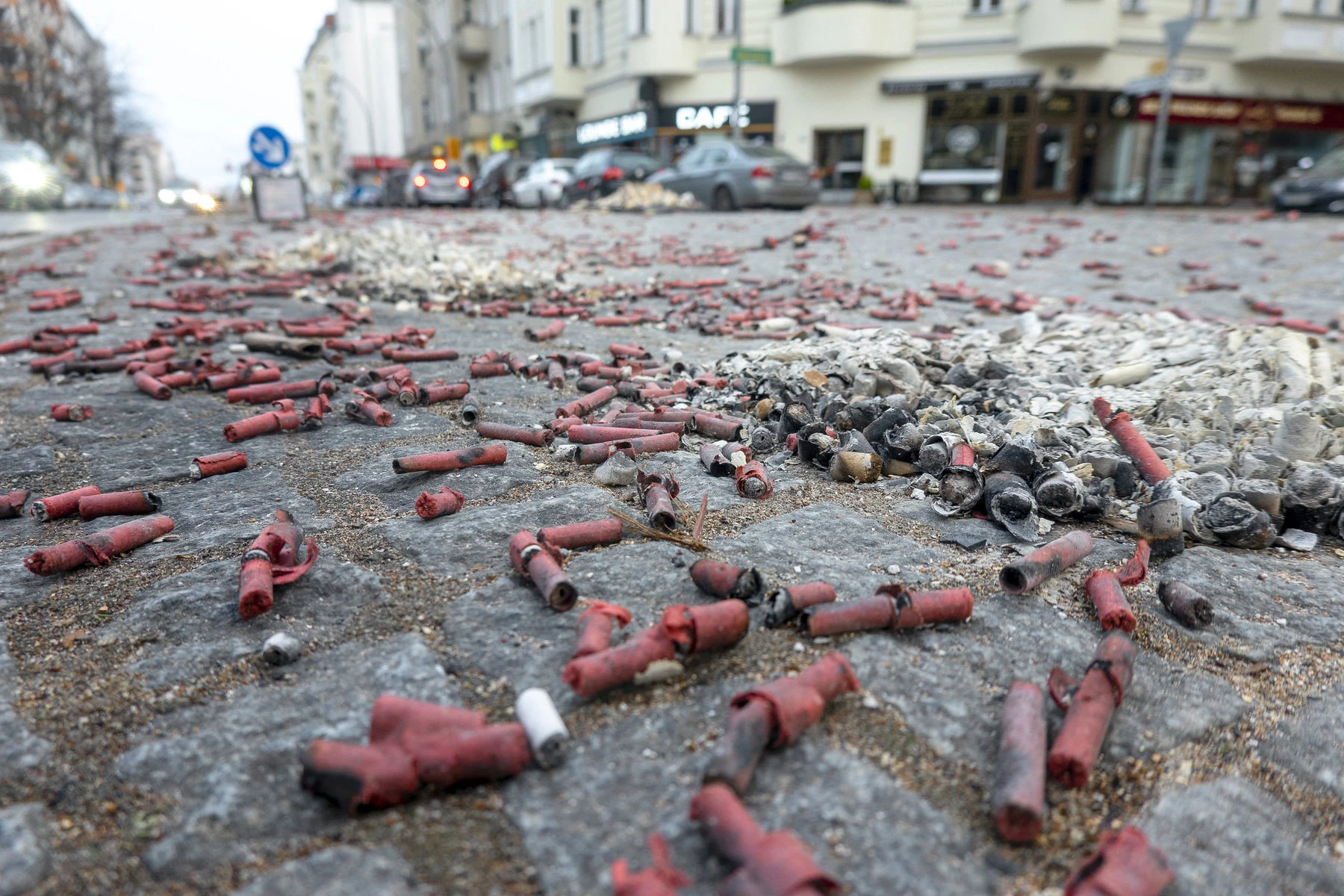
Not to speak of the massive pollution. Fireworks contain gunpowder (which includes potassium nitrate, charcoal and sulfur) plus chemicals for color, including strontium, carbon monoxide, nitrogen, aluminum and other metals as well as particulate matter and plenty of plastic.
Whatever we shoot up must come down. While the show might only last for 15 minutes, the contamination of the soil, water and air lasts much longer, often for many years. After Independence Day, Californian beaches are always littered with the plastic shells and smoldering leftovers of the rockets and artillery shells beachgoers launched.
The effect is not negligible: Americans blow up to 500 million pounds of fireworks every year.
Of course, these issues are not limited to the US. Many countries have their own traditions. In Germany, where I’m from, we blast fireworks on New Year’s Eve. France has its Bastille Day. In India, Hindus celebrate Diwali, the Festival of Lights, over five days with more than a 100 million pounds of fireworks. The resulting pollution is so severe that schools in India often have to close after Diwali, with toxins in the air up to 18 times over the legal limit.
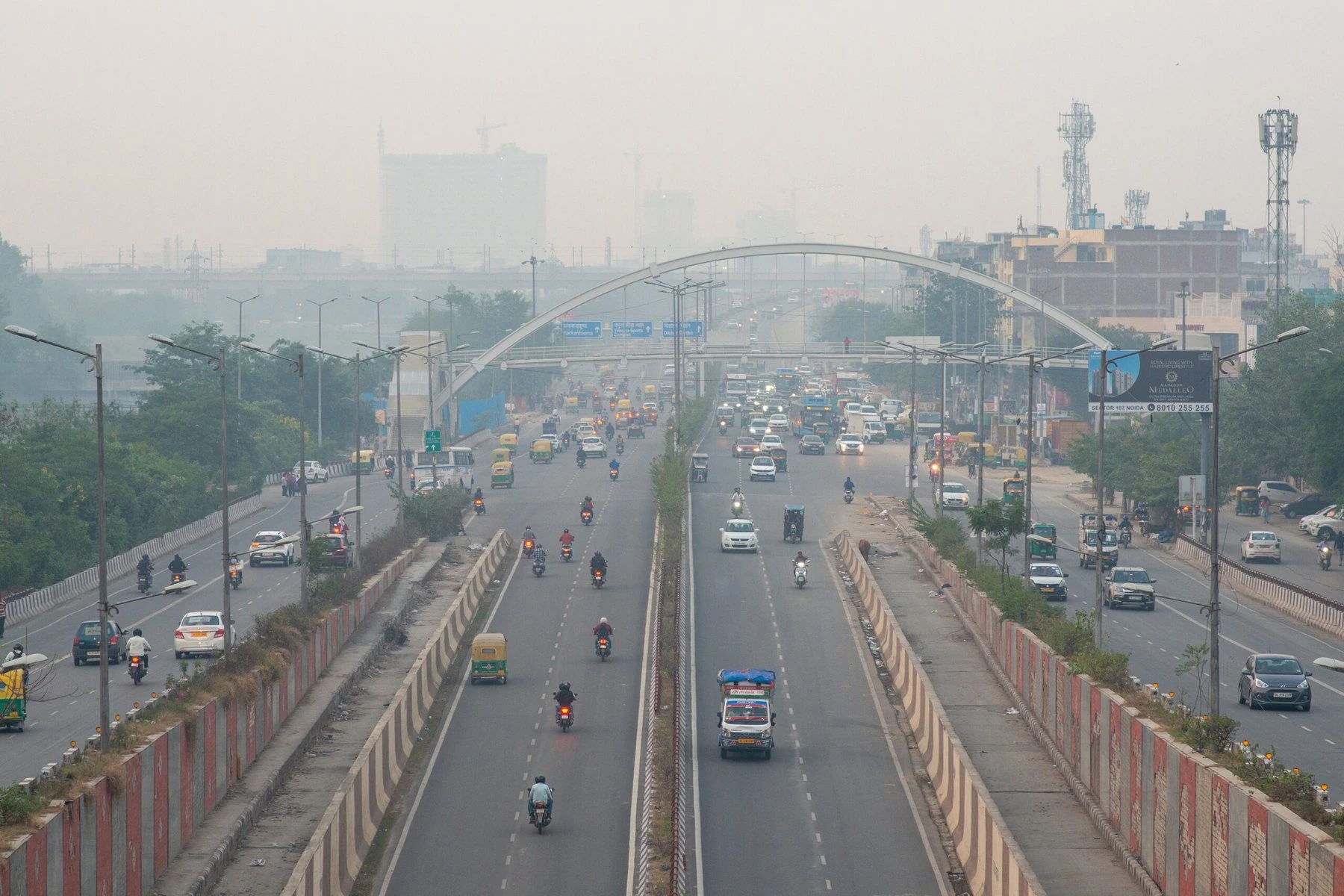
If the effects on air quality and animals aren’t bad enough, consider the immediate danger to humans. Emergency rooms fill with burn victims the day after fireworks celebrations. Last year, eight deaths and an estimated 9,700 injuries were attributed to fireworks. Worse, the explosives cause thousands of fires every year — for instance, in 2022, nearly 100 homes had to be evacuated after the Fourth of July in the area around Centerville, Utah.
Call me a party pooper, but once I learned all this, I began to hate fireworks with a passion. When I started asking why we need to set off destructive explosives in order to have a good time, I found that all of this could easily be avoided because safer and more environmentally friendly alternatives are readily available.
Laser and drone shows are comparatively new inventions, but because of AI, they are rapidly getting more sophisticated and entertaining every year. The 2020 Olympics in Tokyo proved this innovation beautifully with 1,820 dancing drones instead of fireworks on the opening day.
Because of the fire danger, Salt Lake City, Utah, has been organizing laser light shows instead of fireworks on the Fourth of July since 2022.
In Canada, cities like Banff and Canmore replaced traditional fireworks with low-noise, low-altitude, special-effects pyrotechnics because naturalists in the area reported damaging effects on nesting birds and wintering elk. Like many cities, they are also trying to outlaw individual consumer fireworks altogether to have better control over the fire danger and pollution cleanup.
“When you live in a valley full of trees, at a time of drought especially, and when wildfires are abounding as we have seen over recent years due to changes in climate, temperatures and weather patterns, we really have to be on top of somebody that’s purposefully setting off something that’s ignited into our environment,” said Canmore Mayor Sean Krausert.
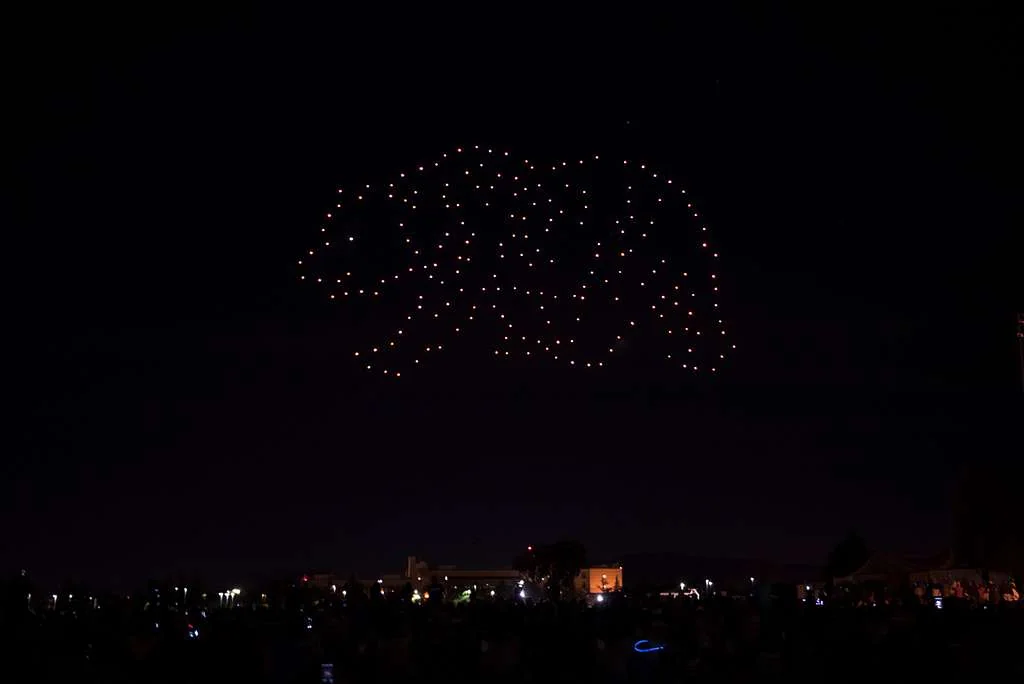
In Italy, the town of Collecchio insists on silent fireworks. They are made with a reduced amount of flash powder, which lessens the noise they make. They still have most of the pollution problems, but at least they don’t scare the wildlife.
Critics in several cities have started petitions to bring back the beloved fireworks and insist they are a patriotic American tradition. But this argument is hard to sustain when veterans are among the groups objecting to the noise. My friend in Laguna Beach, a Vietnam vet with PTSD, is looking forward to the local Fourth of July party for the first time this year. “The noise always took me back to the worst times in Iraq,” he recently confessed.
I usually spend the Fourth of July with my rescue dog, Indigo, who is terrified when our neighborhood sounds like a war zone. So we turn up the volume on the TV to try and mask the noise, keep all blinds firmly closed and hide in the bedroom until the worst is over.
Wild animals don’t have that luxury.








